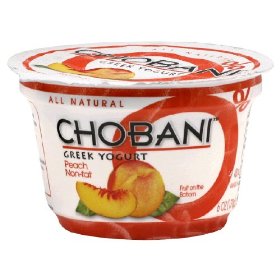 Top Class Action Lawsuits
Top Class Action Lawsuits
Dueling Rides… An unfair business practices class action lawsuit has been filed by the ride share company Lyft against its rival company Uber, alleging Uber creates and uses shell accounts to hurt business for Lyft. Yeah, that sounds pretty unfair, if true.
Lyft driver Ryan Smythe and “others similarly situated”, filed the Uber class action complaint against Uber Technologies Inc, and 100 unnamed entities said to exist as “mere shells and conduits” for Uber’s affairs.
Here’s the skinny: according to the complaint, Mr. Smythe started as a Lyft driver in September 2014, one month after accusations began concerning “Operation SLOG,” an alleged Uber-sponsored campaign that involved spamming Lyft drivers with false ride requests in an effort to negatively impact Lyft’s business.
This allegedly involved Uber creating dummy Lyft accounts with prepaid cellphones and credit cards which were then used to place fake requests with Lyft drivers. According to the lawsuit, Uber’s alleged operation amounted to unfair business practices under California law as well as intentional interference with prospective economic advantage.
The complaint asserts that Uber engaged in a “systematic course of creating fraudulent Lyft accounts from which sham orders were placed, at least in part to deprive Class members from earning income in violation of California Business and Professions Code which prohibits unfair business practice.”
Further, Smythe claims in the proposed class action that Uber directed its drivers and third-party companies to make these requests “for the sole purpose of luring Lyft drivers to locations in which a false request for service directed them.” So much for “just making a living.”
“Uber Technologies did this to discourage Lyft drivers from contracting with Lyft, to deprive the marketplace of Lyft drivers so that Uber drivers could benefit and to create a higher wait time for Lyft customers in order to steer their patronage to Uber Technologies in violation of California Business and Professions Code,” the complaint states.
75 to 45 in 2 Seconds? This sounds just a tad dangerous. BMW got hit with a nationwide defective automotive class action lawsuit for alleged defects in the electric BMW i3 vehicles—defects which cause the vehicle to rapidly drop speed. Read on.
The BMW lawsuit centers around the BMW i3 “Range Extender” feature. This option, called REx, outfits the vehicle with a two-cylinder gasoline engine producing 34 horsepower that switches on when the battery charge depletes to five percent, giving the vehicle another 70 miles of range. BMW claims that the Range Extender “doubles your electric driving range” from the vehicle’s standard 81-mile range.
However, the lawsuit alleges that in practice, when the gasoline engine kicks in, it doesn’t produce enough power to prevent a dramatic decrease in the vehicle’s performance. As alleged, if the car is under any kind of significant load (such as going up a hill, or loaded with passengers), the speed of the car will dramatically decrease as the battery charge diminishes. According to the complaint, this can result in the car slowing to speeds of 45 miles per hour on the freeway, without warning. This sudden and unexpected loss of power in a motor vehicle can result in a catastrophic situation for all those on the road. Yes, no—not a good thing at all.
The lawsuit seeks to have the vehicles redesigned and repaired at BMW’s expense, and to halt the sale of all i3 vehicles until repairs can be made. The claim also seeks compensation for all the owners of the vehicles, who were not told of the serious safety defect.
The case Edo Tsoar v. BMW North America, LLC (Case No. 2:16-cv-03386) was filed in U.S. District Court in Los Angeles.
Top Settlements
Hip Settlement in Canada. Some news from north of the Border—two Canadian class actions have been certified—one in British Columbia (Jones v. Zimmer) and another in Ontario (McSherry v. Zimmer). Authorization (Certification) is pending in a proposed class action filed in Quebec (Major v. Zimmer), and the parties have consented to authorization (certification) of that action.
Translation? Settlement. Yup—subject to court approval, the hip implant settlement applies to “all persons who were implanted with the Durom Cup in Canada” and their estates and family members. Nice one.
No dollar figures to report, and of course, the defendants to the three actions do not admit liability, but have agreed to a settlement providing compensation to class members with certain injuries upon approval after receipt of supporting documentation, less deductions for legal fees.
FYI—Public health insurers are also entitled to compensation under the settlement agreement.
Motions to approve the settlement agreement will be heard in Vancouver on June 28, 2016, Ontario on July 14, 2016, and in Montreal on June 28, 2016.
Ok…that’s a wrap folks! Have a good one–and see you at the Bar!


